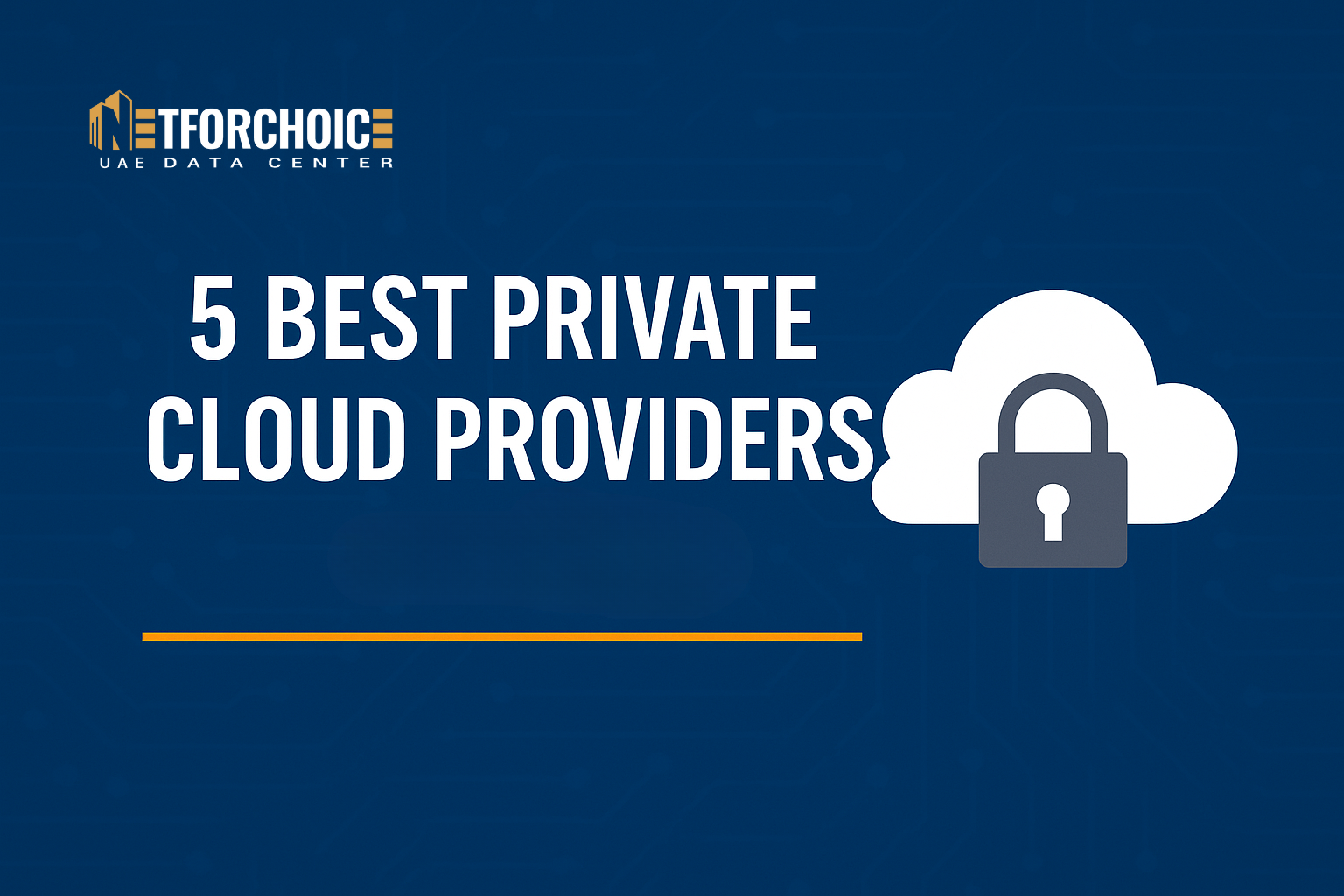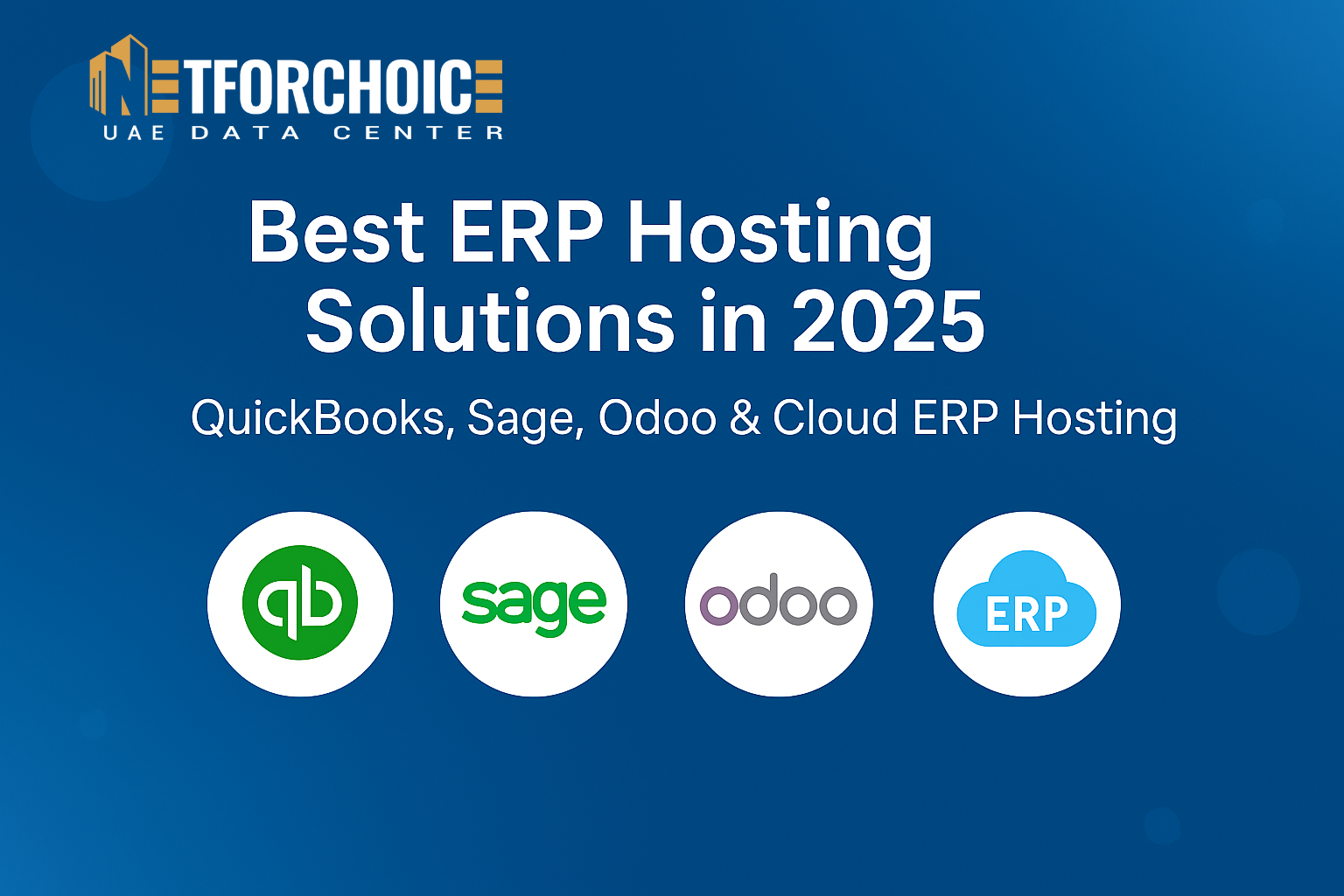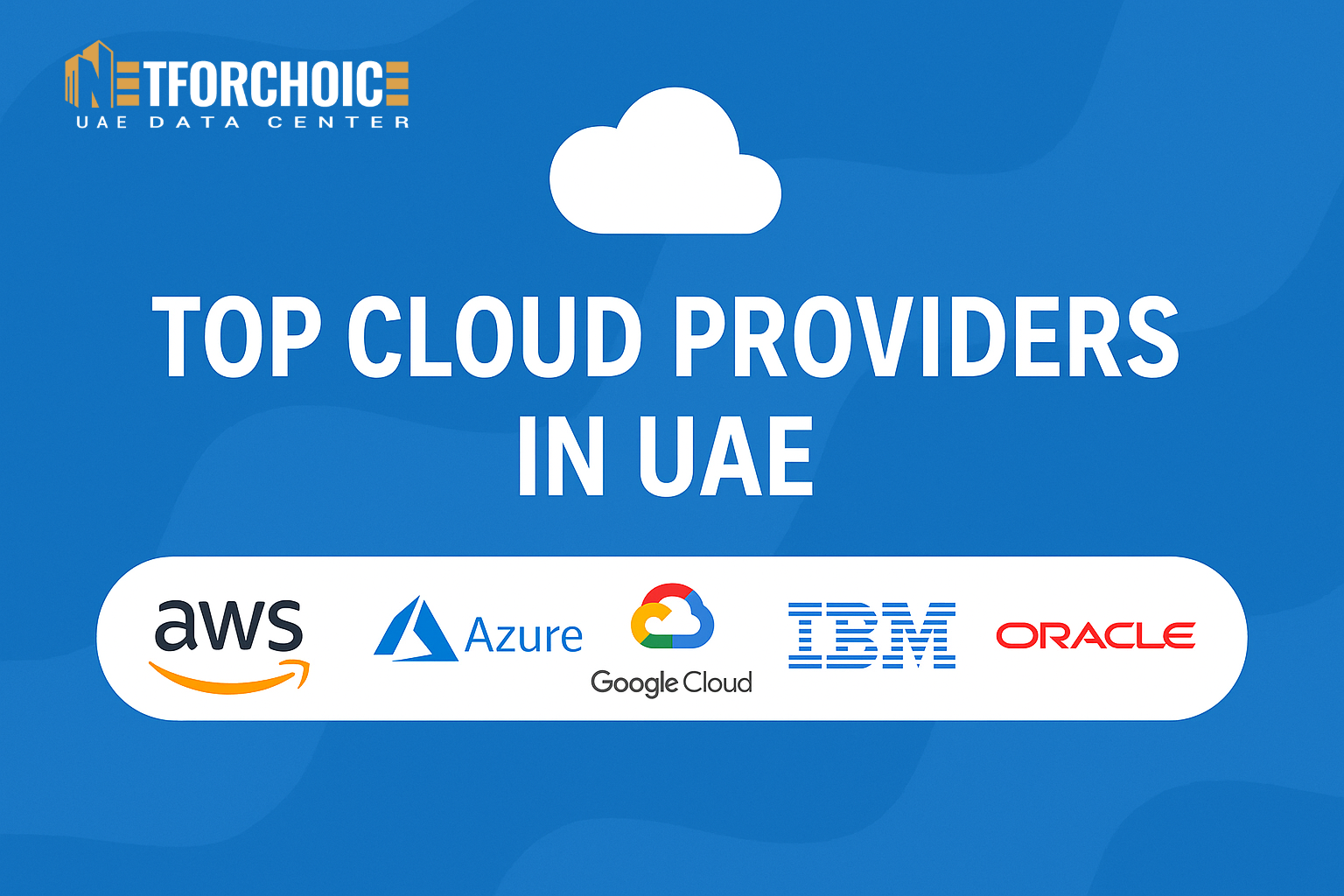5 Best Private Cloud Providers in Dubai, UAE

What are the Reasons to use a Private Cloud?
In the current digital-era, cloud offers business an opportunity to hire remote servers that are maintained by a service provider. These servers are accessible through online dashboard or control panel.
Whereas in a public cloud environment, resources are shared between many customers, a private cloud is custom-made to your business, using dedicated infrastructure and providing more privacy, control, and performance.
That is why the use of the private cloud is flourishing. The private cloud market is anticipated to grow by 15.8 percent per annum, and it will reach an enormous figure of 405 billion by 2033. Indeed, eighty-nine percent of businesses currently employ a multi-cloud approach, commonly in conjunction with both private and public clouds.
So why are so many businesses choosing private cloud? Let’s break it down.
Key Benefits of Private Cloud
- Enhanced Security & Privacy
Private cloud gives you a dedicated environment — meaning no shared infrastructure. This greatly reduces the risk of data breaches.
It suits best the industries such as finance and healthcare, where compliance and data privacy are not negotiable. Regulations such as HIPAA or GDPR do not necessitate the use of private cloud, but in case of their use, they will be simpler to comply with and manage risk.
- Full Control & Personalization
Using private cloud your IT team can access and control, all the way to the backend. Feel like putting on some custom apps or changing low-level settings? You can.
Such flexibility is hardly attainable with the use of public cloud solutions.
- Stability & Dependability
Private cloud is dedicated resources- No one is stealing your bandwidth. You have a more consistent performance, even when you are doing a peak usage.
Automation features also mean that your cloud can be scaled in real time to accommodate traffic spikes.
- Scalable & Cost-Efficient
This may appear to be costly but in the long run, private cloud can be more economical. The majority of providers use a pay-as-you-go billing model meaning that you will only be charged what you consume, not an over-estimated monthly plan.
What is the Best Way to Select the Right Private Cloud Provider?
Prior to naming the top providers, here is what you are to keep in mind when choosing:
Learn Pricing Models:
Seek clear pricing (no fine print)-
Pay-as-you-go is appropriate when there is variable usage; fixed plans are more appropriate when workloads are predictable.
Take into account the full price including storage, data transferring and support.
Focus on Scalability & Speed-
Make sure that the provider supports both vertical and horizontal scaling (more power to VMs, more VMs).
Autoscaling is useful in the case of traffic peaks.
Infrastructure speed and uptime should be checked through reviews by third parties.
Security & Compliance-
In 2022, 39% of businesses experienced a cloud data breach, don not become one of them.
Seek encryption, access controls, frequent security audits, security compliance certifications (HIPAA, PCI-DSS, etc.).
Ensure you know where your data is going to be stored as there are laws that need local data residency.
Seek Additional Functions & Help-
Does it fit into your existing systems?
Do they have inbuilt monitoring, backup or multi-cloud management tools?
Is there 24/7 expert support provided by the provider?
Best 5 Private Cloud Providers 2025
1. Net For Choice Gulf Cloud Service & Datacenters Providers LLC

Its best fit: Enterprise-Grade Private Cloud in the UAE & Gulf Region
Net For Choice Gulf Cloud is a Tier III data center provider of enterprise-level private cloud hosting in the UAE and Gulf region. Being highly secure in both data and regulatory compliance, as well as customizable, NFC Gulf Cloud is an ideal choice of businesses that require a robust and scalable cloud.
Why It:
- Exclusive Private Cloud and full control
- 24/7 specialist assistance and SLA-based uptime
- Industry specific to BFSI, Healthcare, Government, and IT
- Hybrid or multi-cloud integration seamlessness
Features Include:
- Pieces of siloed security and compliance infrastructure
- Scalable design based on high performance hardware
- UAE regulation local data residency
- Advanced disaster recovery and backup solutions
Pricing: As per request depending on infrastructure requirement.
2. Amazon Web Services (AWS)

Ideal to: Flexible Cloud Solutions that have a Global Presence
AWS is a household name in cloud computing and provides the service of the private cloud through Amazon VPC (Virtual Private Cloud). AWS Outposts is an excellent solution to on-premises deployments.
Why Pick It:
- Tremendous worldwide infrastructure
- Perfect in hybrid and multi cloud environments
- Large set of tools and APIs
Features Include:
- Accommodates any type of workload including websites and AI
- Extremely reliable network that is globally redundant
- Compliance-ready infrastructure
Pricing: Pay-as-you-go. Service and region dependant.
3. Microsoft Azure

Its best use is by businesses operating on the Microsoft ecosystem.
Azure is a powerful option when it comes to companies that have already invested in Microsoft products such as Windows Server, Office 365, or Active Directory. Its Azure Stack allows a multi, hybrid, and private cloud model.
Why Pick It:
- Easy compatibility with Microsoft products
- High security and compliance assistance
- Wide IaaS, PaaS, and SaaS selections Broad range of IaaS, PaaS, and SaaS options
Features Include:
- VMs, databases, dev/test environments, etc.
- Strong regional coverage of compliance
- First-time use free trial
Pricing: Pay-as-you-go and fixed monthly model.
4. Google Cloud

Suits best: Analytics, AI, and Multi-Cloud Environments
Google Cloud provides robust private clouds with its Virtual Private Cloud and Kubernetes Engine in particular. It is the default option of organizations dealing with innovation and open-source compatibility.
What to Choose It?:
- Potent analytics and AI tools
- A high degree of support to multi-cloud configurations
- Superior containerization functions
Features Include:
- DevOps and open-source tools
- High speed networking and international infrastructure
- Granular, low prices
Pricing: Pay-as-you-go. Begins at 0.02 GiB/$.
5. Oracle Cloud

Most suited to: Enterprise Databases and On-Premises Flexibility
Oracle Cloud is best at offering privates cloud with database-first. Its Private Cloud Appliance fits the business that requires local hosting because of compliance.
Why:
- Enterprise-level database management architecture was built into it
- On-premises deployment choices
- Very secure and performance oriented
Features Include:
- Oracle Autonomous Database
- Disaster recovery and high availability options
- In-place analytics and machine learning
Pricing: Subscription-based and pay-as-you-go flexible pricing.
Final Thoughts
Private cloud isn’t just for tech giants — it’s now more accessible, affordable, and essential than ever. Regardless of whether you are security-oriented, scalable, or performance-oriented, the proper provider will make your business grow with no worries.
When you are working in the UAE or Gulf region, Net For Choice Gulf Cloud would be the ideal mix of enterprise-grade performance, local compliance, and tailored solutions, so it is one of the best private cloud providers to consider in 2025.
FAQs
Q1. Which is better, the public cloud or the private cloud?
Yes, particularly to businesses that require additional control, security and performance.
Q2. Is it more expensive with the use of a private cloud?
It is initially, but its long term value and flexibility usually makes it more cost effective.
Q3. What industries require the use of the private cloud?
Such industries as healthcare, finance, government, and legal where compliance and data security is paramount.
Q4. Is a transition between public and private cloud possible?
Yes, the providers have a lot of tools and support to assist in the migration..



